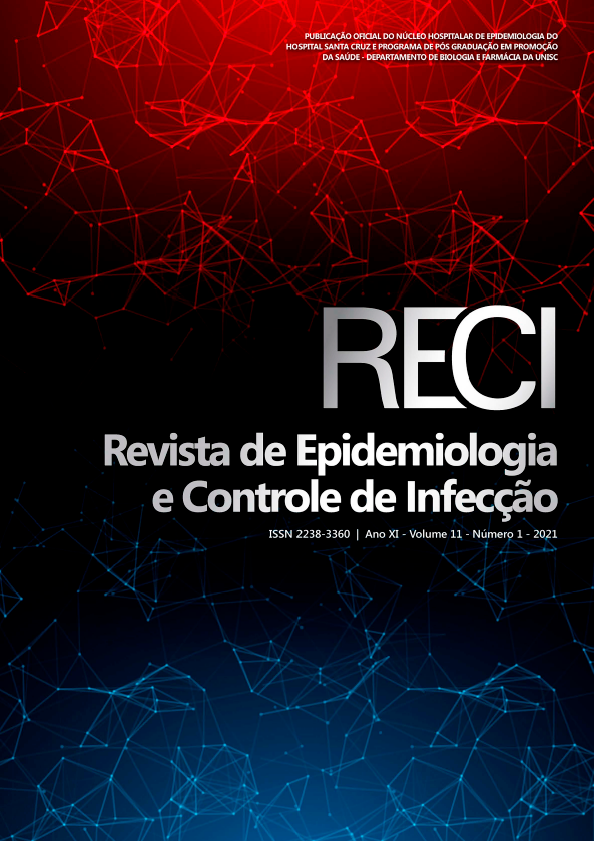Covid-19 and prisons: Reflection on human rights and public health
DOI:
https://doi.org/10.17058/reci.v1i1.15523Palavras-chave:
Prisons, Covid-19, Infectious diseases, Pandemic, Public healthResumo
Background: The epidemic of coronavirus disease 2019 (COVID-19) is a challenging public health problem. The identification of risk groups is essential for the establishment of prevention, screening, containment and treatment strategies. In Brazil, overcrowding and unsanitary conditions in prisons have been a problem for a long time that facilitates infection diseases. Objective: To reflect on the vulnerability of the prison population to COVID-19 and the implications of possible outbreaks in public health Method: Theoretical-reflective study. Results: The prison population has a high clinical vulnerability to contamination by COVID-19. This is aggravated by the structural conditions of prisons, which increases the spread of diseases, especially respiratory conditions, and hinders the establishment of preventive measures. The health care strategies of this population are still insufficient. Conclusion: Outbreaks of COVID-19 in prisons affect prisoners, staff and family members, and could lead the health system to an unprecedented collapse. Strategies to reduce the impact of COVID-19 in prisons and its impact on public health are urgent. Priority health measures, contingency protocols and coordinated actions between the health and justice sectors must be implemented in order to minimize the spread of the virus in this vulnerable and invisible population.Downloads
Downloads
Publicado
Como Citar
Edição
Seção
Licença
Copyright (c) 2021 Felipe Rech Ornell, Silvia Chwartzmann Halpern, Juliana Nichterwitz Scherer, Barbara Sordi Stock, Marcio Wagner Camatta, Renata Maria Dotta, Carla Dalbosco, Lisia von Diemen, Felix Henrique Paim Kessler

Este trabalho está licenciado sob uma licença Creative Commons Attribution 4.0 International License.
The author must state that the paper is original (has not been published previously), not infringing any copyright or other ownership right involving third parties. Once the paper is submitted, the Journal reserves the right to make normative changes, such as spelling and grammar, in order to maintain the language standard, but respecting the author’s style. The published papers become ownership of RECI, considering that all the opinions expressed by the authors are their responsibility. Because we are an open access journal, we allow free use of articles in educational and scientific applications provided the source is cited under the Creative Commons CC-BY license.


